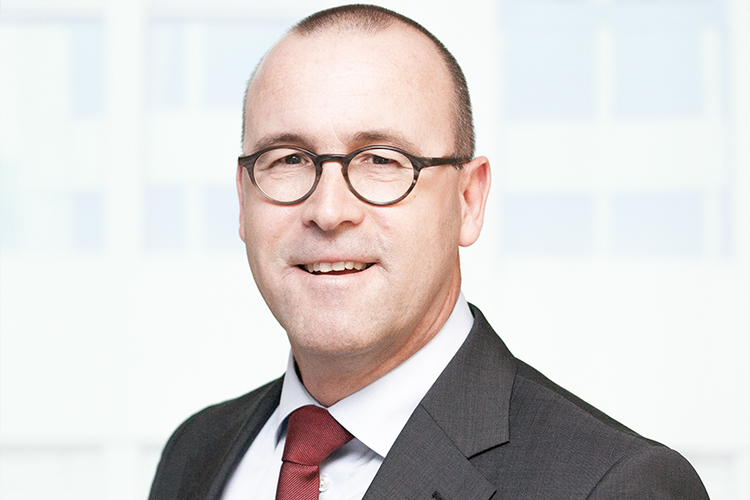annual carbon footprint is measured and its development is evaluated. The entire logistics of the company is also offset with myclimate. This is reason enough to let Mr Peter Meier, Managing Director, discuss the position of Papyrus Schweiz AG on the subjects of paper, climate and the environment.
Mr Meier, please complete the following sentence: Paper is unique because...
… it has not lost its sensory nature even 2,000 years after its invention; now more than ever, it stimulates certain emotions with its feel.
With the advent of digital communication, the death of paper as a medium was heralded, including the argument of reduced resource consumption. How do you assess the situation today?
Digital and print communication complement each other perfectly. Digital communication is fast but also fleeting. In contrast, print can be touched and makes content tangible. We humans perceive things using several senses, and only print communication can be felt. Particularly in today’s fast-paced communications, haptic impressions awaken emotions and are retained in the memory.
Regarding the consumption of resources, a lot has been happening over the last two decades. All of our products now come from certified or controlled sources. Paper is one of the most recycled products in general; about 60 percent of paper requirements are covered with recycled paper. Since 1990, the European paper industry has reduced CO₂ emissions per tonne of paper produced by 40 percent. Chlorine bleach is no longer an issue.
However, waste from short-lived electronics has moved into the focus of environmental groups. This “e-waste” is growing by three to five percent per year.
Which areas do you influence to make your paper more sustainable?
All shipments of our company, as well as the entire logistics centre in Dintikon, are climate-neutral. We were thus a pioneer in 2010 and obtained the appropriate certificate from myclimate. With the label “myclimate neutral – Transport”, we are continuing to expand our leading position as a responsible, environmentally oriented company, thus persevering on the path that we committed ourselves to years ago.
Back in 2003, we were the first European paper wholesale company to be awarded the <link ch.fsc.org/zertifizierung.4.htm - external-link "Opens external link in current window">FSC</link> (Forest Stewardship Council) certificate. The FSC share of our sales volume is 75 percent. Well over 50 percent of our shipments are handled by rail by our partner SBB Cargo.
What role does the communication and provability of your sustainability commitment play?
It is important to us that our customers are informed about paper and the environment, be it our climate-neutral logistics or our paper products. You can find detailed information about these issues on our website. In addition, we promote ecologically superior products to underline our commitment to the environment. <link www.papyrus.com/frCH/catalog/c/cat6080035/Papiers_recycl%C3%A9s/view.htm - external-link "Opens external link in current window">BalancePure®</link> is a recycled paper with 100 percent recycled paper content, awarded the most stringent environmental label (Blue Angel); it has a high whiteness, one which can usually be found only in virgin-fibre papers.
In what areas have you benefited from collaboration with myclimate?
Since 2008 we have been systematically adapting the makeup of our vehicle fleet to current technology standards. While the fleet had 32 trucks with the Euro III emission standard in 2008, the final vehicles in this category were retired in 2014. The same is true for all remaining vehicles with the Euro IV emission standard. The current fleet thus consists mainly of trucks with the V + VI emission standards.
By implementing numerous energy efficiency measures in the Dintikon logistics centre, electricity and heating energy consumption were significantly reduced there. Since 2008 the power consumption in Dintikon has dropped by 21 percent and the heating energy requirement (provided mainly by gas) by 44 percent.
Another area where climate performance has improved significantly is in waste management. The greenhouse gas emissions caused by waste and wastewater have fallen by two thirds per tonne of sold paper since 2008.
